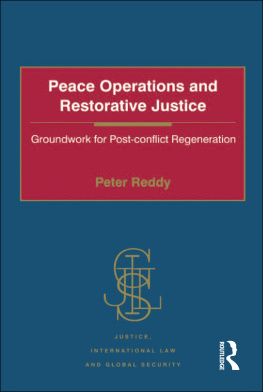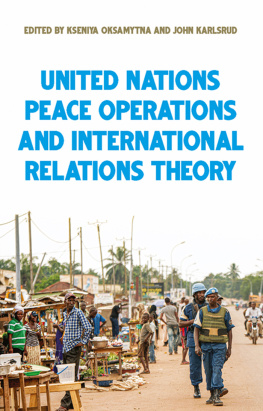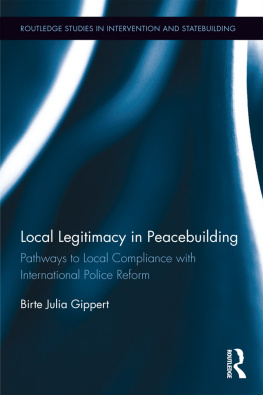First published 2002 by Oxford University Press for the International Institute for Strategic Studies, Arundel House, 13-15 Arundel Street, Temple Place, London, WC2R 3DX
This reprint published by Routledge
2 Park Square, Milton Park, Abingdon, 0X14 4RN
For The International Institute for Strategic Studies
Arundel House, 13-15 Arundel Street, Temple Place, London, WC2R 3DX
www.iiss.org
Simultaneously published in the USA and Canada
by Routledge
270 Madison Ave., New York, NY 10016
Routledge is an imprint of the Taylor & Francis Group
Transferred to Digital Printing 2007
2002 The International Institute for Strategic Studies
Director John Chipman
Editor Mats R. Berdal
Copy Editor Charles Hebbert
All rights reserved. No part of this book may be reprinted or reproduced or utilised in any form or by any electronic, mechanical, or other means, now known or hereafter invented, including photocopying and recording, or in any information storage or retrieval system, without permission in writing from the publishers.
British Library Cataloguing in Publication data
A catalogue record for this book is available from the British Library
Library of Congress Cataloguing in Publication data
ISBN 0-19-851673-8
ISSN 0567-932X
Publishers Note
The publisher has gone to great lengths to ensure the quality of this reprint but points out that some imperfections in the original may be apparent
Introduction
Civilian police officers were first deployed as part of a UN peace operation in the Congo in the early 1960s. They were a haphazard supplement to the military observers who were entrusted with the actual peacekeeping mission. From the 1960s to the late 1980s, civilian police were deployed only sporadically and their task was to accompany local police on patrols, monitor police behaviour and in some cases give advice. The revival of international civilian police operations began in Namibia in 1989, where monitoring the restructuring and performance of local police was a minor element in the United Nations Transitional Authority Group (UNTAG). It moved on to training and reform missions in E1 Salvador, Haiti, Cambodia, Somalia, Eastern Slavonia and Bosnia-Herzegovina and elsewhere: civilian police components were gradually assigned a specific role within a peace operation and were deployed strategically in the pursuit of the overall goals of the mission as a whole. This trend culminated in the UN Civil Administrations in Kosovo and East Timor, where international civilian police temporarily replaced local security forces and assumed responsibility for maintaining law and order. This role is known as executive policing because the international police officers in these circumstances are solely responsible for executing and enforcing the law. It represents a major step in that executive policing places high demands on civilian police operations and disempowers the host state by taking over its monopoly on legitimate violence. As a result, the executive policing role has a tendency to overshadow the more traditional efforts at monitoring and training, i.e. the non-executive role of civilian police.
Police assistance is nothing new. Bilateral police assistance was common in the 1960s and resembled the training and reform activities that UN police contingents have engaged in since the 1990s and which are currently in the spotlight. Historically, assistance to police forces was provided by external powers in order to prop up unstable client regimes or strengthen insurgency groups. When, however, these police forces and, implicitly, the assistance for them were linked to human rights abuses, police support became taboo for many donors. It was also subject to restrictions due to more general concerns about the sacrosanct principle of non-intervention in the internal affairs of other states. Clearly, this attitude has changed and more intrusive outside intervention has become politically acceptable: internal security forces are seen as institutions of public service and protection that form the backbone of a democratic society. Although presented as a noble cause, the change in perception is closely linked to the view that a reform of internal security structures is perhaps the best safeguard against continued instability and the threat of refugee flows and organised crime that emanates from conflict areas.









